The TV producer in Donald Trump would have told him it was time to fire somebody.
But this week, after a breathtaking start to his presidency, the turmoil in the money markets has stalled progress, and the polls have turned against him in the one measure he cared about the most: the economy.
He can’t—right now—fire Treasury Secretary Scott Bessent, his Wall Street whisperer who has calmed jittery investors.
To axe Marco Rubio for his lukewarm attitude towards DOGE or Pete Hegseth for the Signal scandal might reflect poorly on Trump. They were his picks, after all.
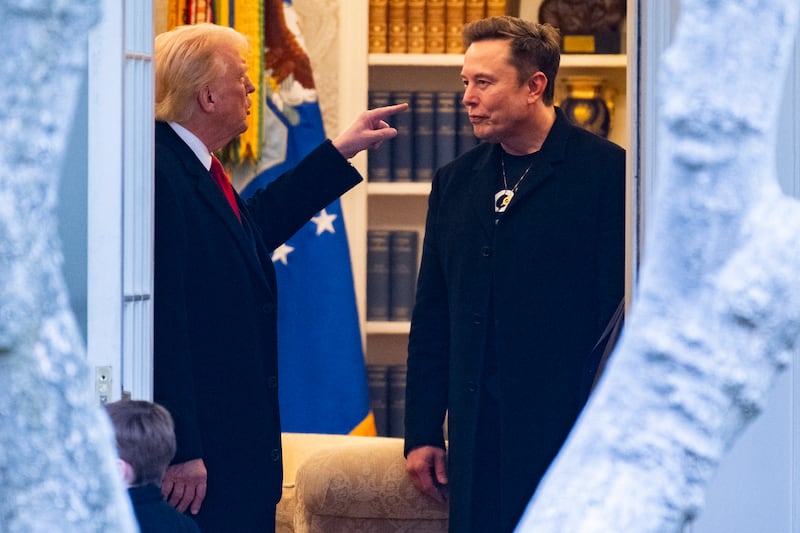
And another candidate to be shown the door, Howard Lutnick, is an old-school billionaire who worships Trump, and they went back a long way. Sycophancy will do that.
But the tech titans who lined up alongside the president at his inauguration on January 20 are newcomers to the party. And this week they found out the hard way what that means.
When ratings begin to fall, every reality show veteran knows what comes next. Heads must fall. Theirs.
Elon Musk and his Silicon Valley friends had been good value for the president, but the time had come to pay the price.
That price has already been heavy for the wealthiest men on the planet. Earlier this month, it was estimated that the companies launched or run by Meta CEO Mark Zuckerberg, Apple CEO Tim Cook, Google CEO Sundar Pichai, Tesla CEO Elon Musk, and Amazon founder Jeff Bezos had lost a total of $1.8 trillion since before they lined up behind the president at his inauguration.
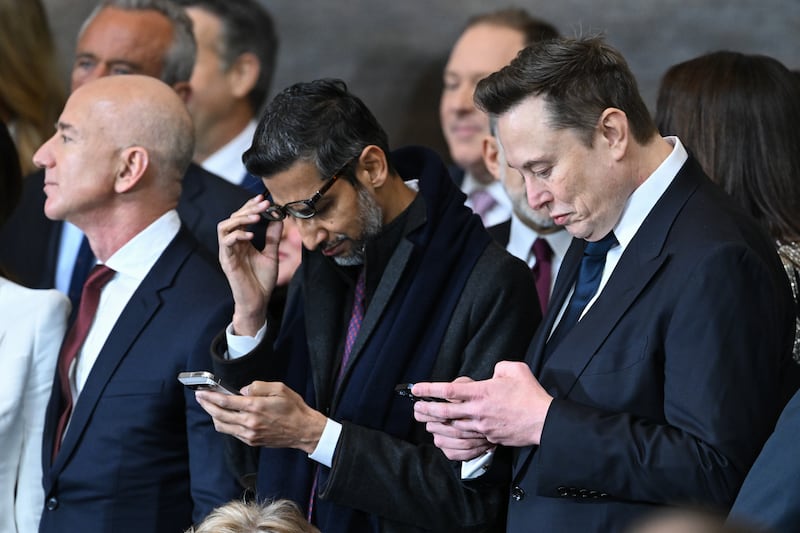
The imposition of whopping tariffs on China and the threats of punitive levies being resumed on other Asian countries have taxed the supply lines of the tech giants perhaps more than any other business. No favors there, then.
Trump needed the tech tycoons when his election campaign was trailing way behind Kamala Harris in fundraising, when he was raising a record amount of cash for his inauguration, and when he was enjoying the courtship of this new band of financial buccaneers.
But this week it became clear that they have jumped the shark. Even the irrepressible Musk.
The world’s richest man already had a foot out of the door after enjoying unprecedented access to the White House—and the entire federal system—with his Tesla brand suffering both financially and in popularity because of his controversial work with the Department of Government Efficiency and his close relationship with the president.
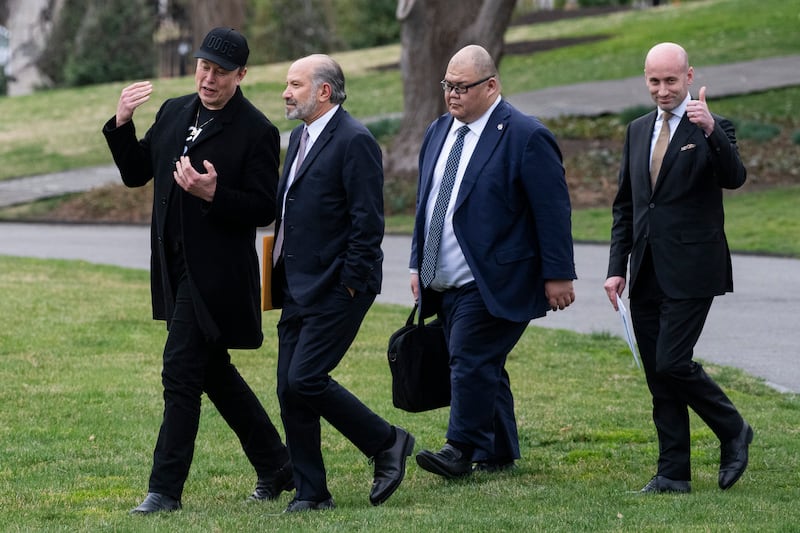
Tesla’s disastrous quarterly results this week were a clear signal that the Musk rocket ship was no longer going up and that there might not be giant chopsticks to catch it.
Musk wasn’t so popular in MAGA world, either, clashing with the likes of conservative rabble–rouser Steve Bannon, and allegedly arguing with Rubio and Bessent in the White House.
Musk was slowly phased out of the spotlight after being ever-present in the White House; on Wednesday Trump referred to him in the past tense. “He was a tremendous help, both in the campaign and in what he’s done with DOGE,” Trump said from the Resolute Desk. “He really helped the country. Saved us a lot of money.” Musk, however, did not save money; by Bloomberg’s calculus, his net worth has gone from $450 billion to hovering around $300 billion.
Mark Zuckerberg’s approach to Trump seemed clearer. He was worried enough about the future of his Meta company to cosy up to Trump to try to prevent it breaking up under the pressure of a federal antitrust case. He hoped that Trump would intervene and dismiss charges that the accumulation of Instagram and WhatsApp was part of a monopoly power grab.
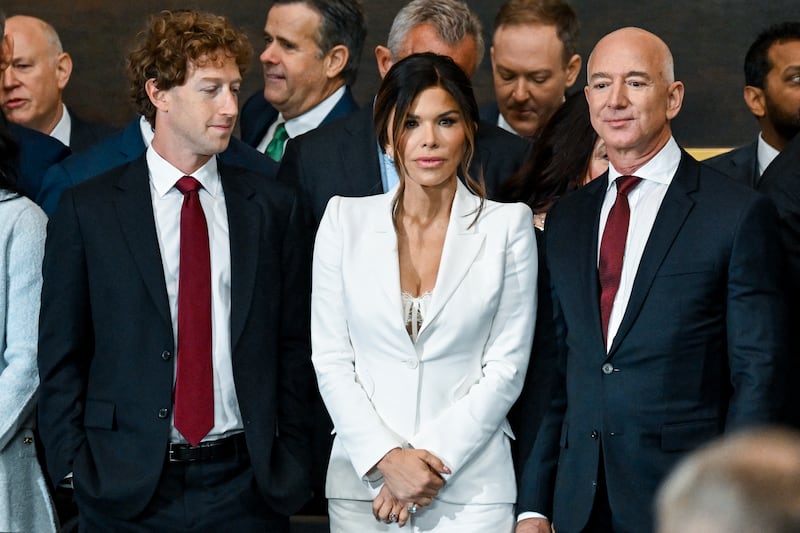
Trump was happy to take $1 million from Zuckerberg for his inauguration fund. But he left the Facebook founder to fend for himself in court.
The fate of Meta is still in the balance, and Zuckerberg could yet beat the charges, but it won’t be any thanks to Trump.
In the same E. Barrett Prettyman United States Courthouse in Washington, D.C., Sundar Pichar’s Google is also mired in a long antitrust battle with the Department of Justice. Pichar was at the inauguration, and Google kicked in another $1 million for the event. The court battle is expected to last longer than Trump.
As for Jeff Bezos, he wreaked havoc on the independent reputation of the Washington Post by denying his editors the age-old tradition of endorsing a presidential nominee and by overhauling the newspaper’s opinion pages to exclude opposing viewpoints.
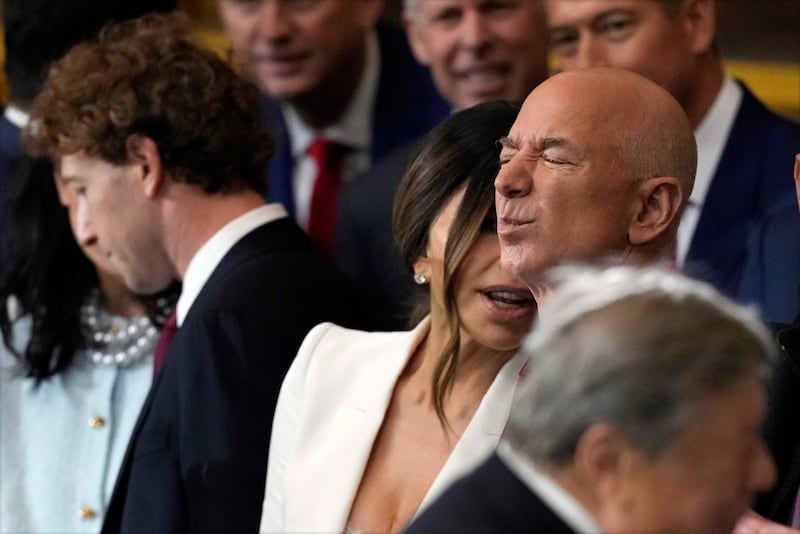
He also paid $1 million for Trump’s inauguration and visited Mar-a-Lago.
The joke went that he was then stolen from the front door of the Palm Beach mansion. It is certainly the case that he’s been largely absent from the Washington scene since Trump got to work. A neighbor told Politico that he only spends four or five days a year at his converted $23 million museum home in DC’s plushest suburb over the past year.
Apple boss Tim Cook is credited with playing Trump most effectively. But he had to pledge a $500 billion manufacturing investment, and Apple’s stocks fell with everyone else’s in the stock market chaos.
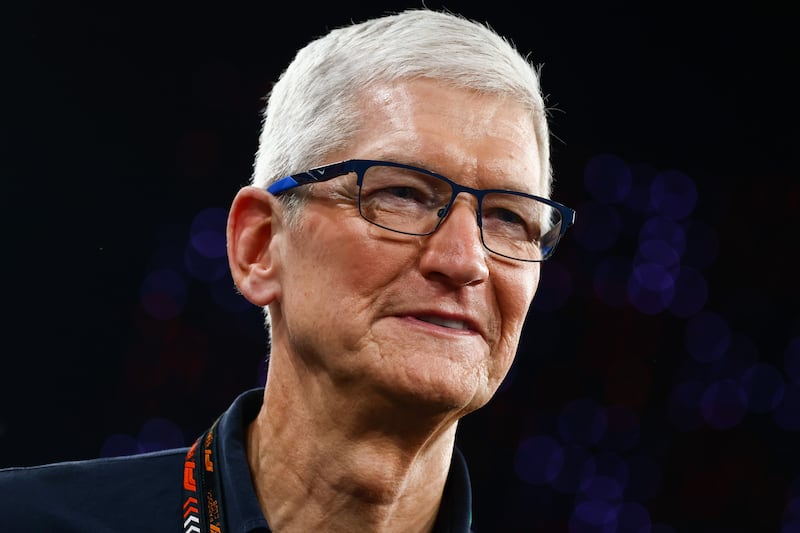
There’s no longer a procession of earnest men in turtlenecks or t-shirts making their way to the White House or Mar-a-Lago.
They tried to save their companies. Now they need to rescue their dignity.
Still, Trump will have no shortage of friends telling him what he wants to hear.
This show’s over. But the new season is going to run and run.
The post What 95 Days Sucking Up to Trump Got the Tech Lords appeared first on The Daily Beast.




